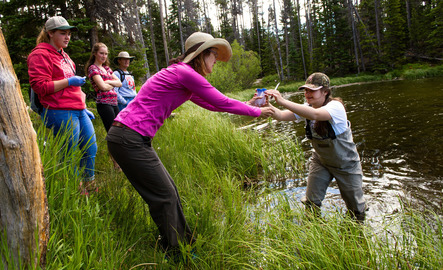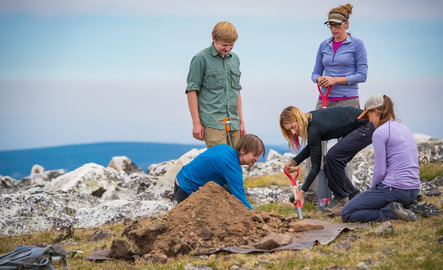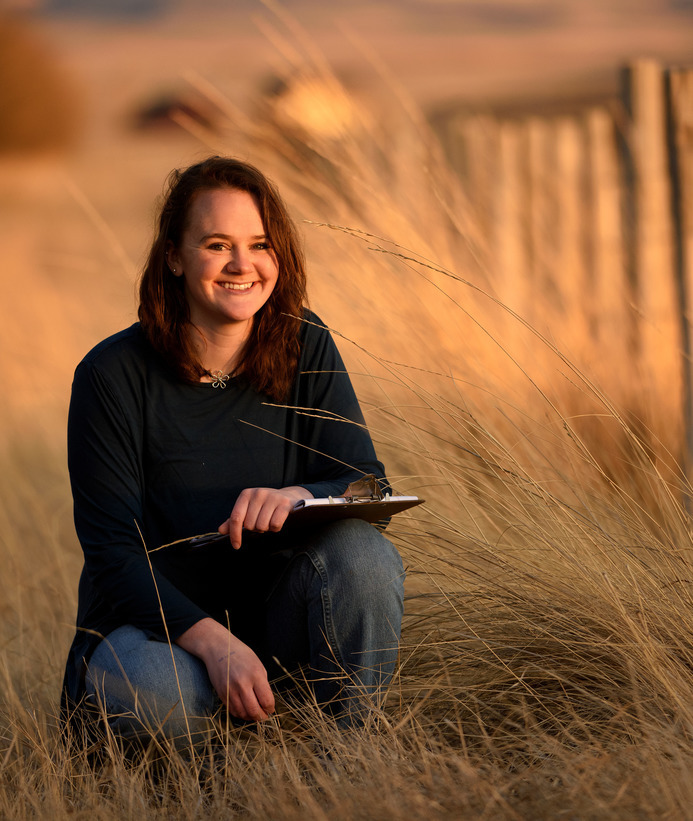About the Rangeland Ecology and Watershed Management Graduate Programs
The rangeland ecology and watershed management (REWM) graduate programs prioritize
rigorous science coursework related to natural resource management, with a particular
focus on rangeland vegetation, forests, water and wildlife.
Our programs prepare master’s and doctorate students to conduct scientific research
and communicate with the public and potential clients. The master’s degree may be
pursued via a thesis or non-thesis track.

The master of science (M.S.) in rangeland ecology and watershed management is designed
to provide graduate students with the expertise to communicate effectively with the
public and clients, alongside the ability to conduct rigorous scientific research.
Students can choose between two plans: Plan A (Thesis), which involves completing
the necessary coursework and successfully defending a thesis through an oral examination,
and Plan B (Non-thesis), available under special circumstances, which requires coursework
and the preparation of professional papers, also defended orally.
View the full master of science in rangeland ecology and watershed management degree program curriculum.
The Ph.D. program emphasizes advanced research in rangeland ecology and watershed
management, requiring comprehensive coursework, an approved research plan, a preliminary
written examination, and a final oral examination. Both programs focus on fostering
strong scientific inquiry and research capabilities.
View the full Ph.D. in rangeland ecology and watershed management degree program curriculum.
The master’s in ecology and watershed management has different requirements depending
on whether you’re pursuing a thesis or non-thesis track. The thesis track requires
an oral defense of your thesis. The non-thesis track requires an oral defense of a
professional paper.
The Ph.D. in ecology and watershed management requires an approved research plan,
a written examination and a final oral examination. All credits earned during a master’s
degree that you’d like to count toward the Ph.D. must be approved by your graduate
advisory committee.

What can you do with an ecology and watershed management degree?
With an M.S. or Ph.D. in rangeland ecology and watershed management from UW, you can lead research, guide land and water conservation efforts, shape environmental policy or work as a consultant or scientist. Our graduates are at the forefront of tackling real-world challenges in ecosystems and resource sustainability.
- Rangeland Ecology and Watershed Management Careers
- Environmental Consultant
- Forestry
- Mine Rehabilitation Specialist
- Natural Resources Recreation and Tourism
- Ranch or Range Livestock Manager
- Real Estate/Land Manager
- Restoration Ecologist
- Range or Soil Conservationist
- Soil Scientist
- Watershed Ecologist
- Wildland Fire Manager
- USDA NRCS
- U.S. Bureau of Land Management
- U.S. Forest Service
- The Nature Conservancy
- Two Dot Environmental Consulting
- State of Wyoming
- Wyoming Game and Fish
- Trihydro Corporation
- University of Wyoming
- City of Fort Collins
We are proud to be the nation's largest accredited rangeland ecology and watershed management program. Our courses blend environmental science and agriculture, offering hands-on learning and a strong foundation for graduate study or careers as a rangeland and watershed specialist.
Certainly! Our faculty members bring expertise across all areas of rangeland ecology and watershed management. Our REWM team is passionate about mentoring and supporting students in their academic and research goals.


